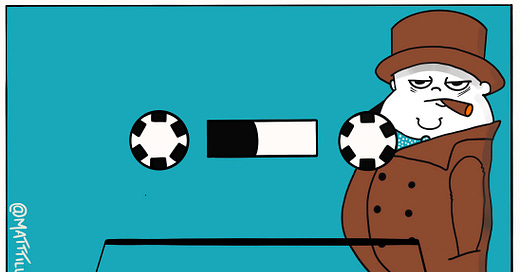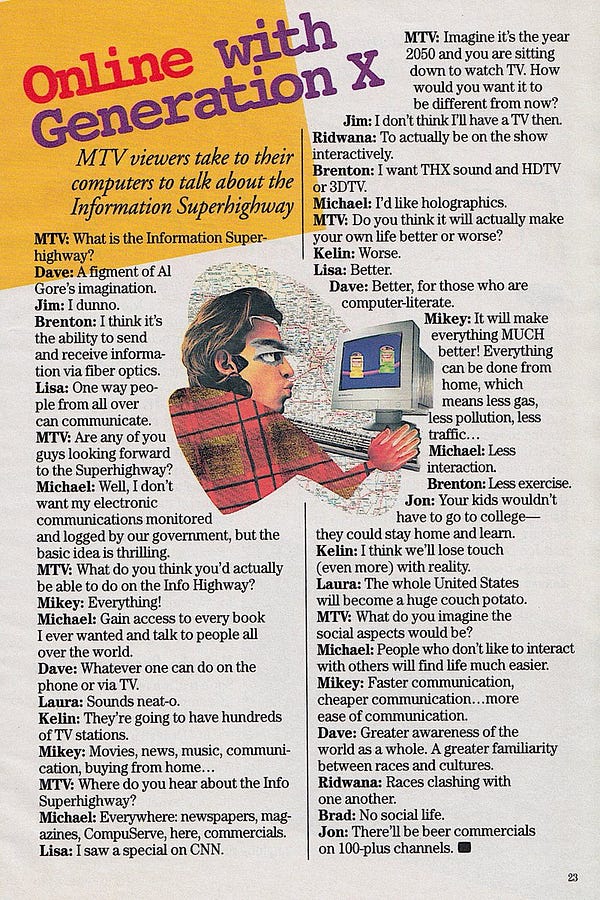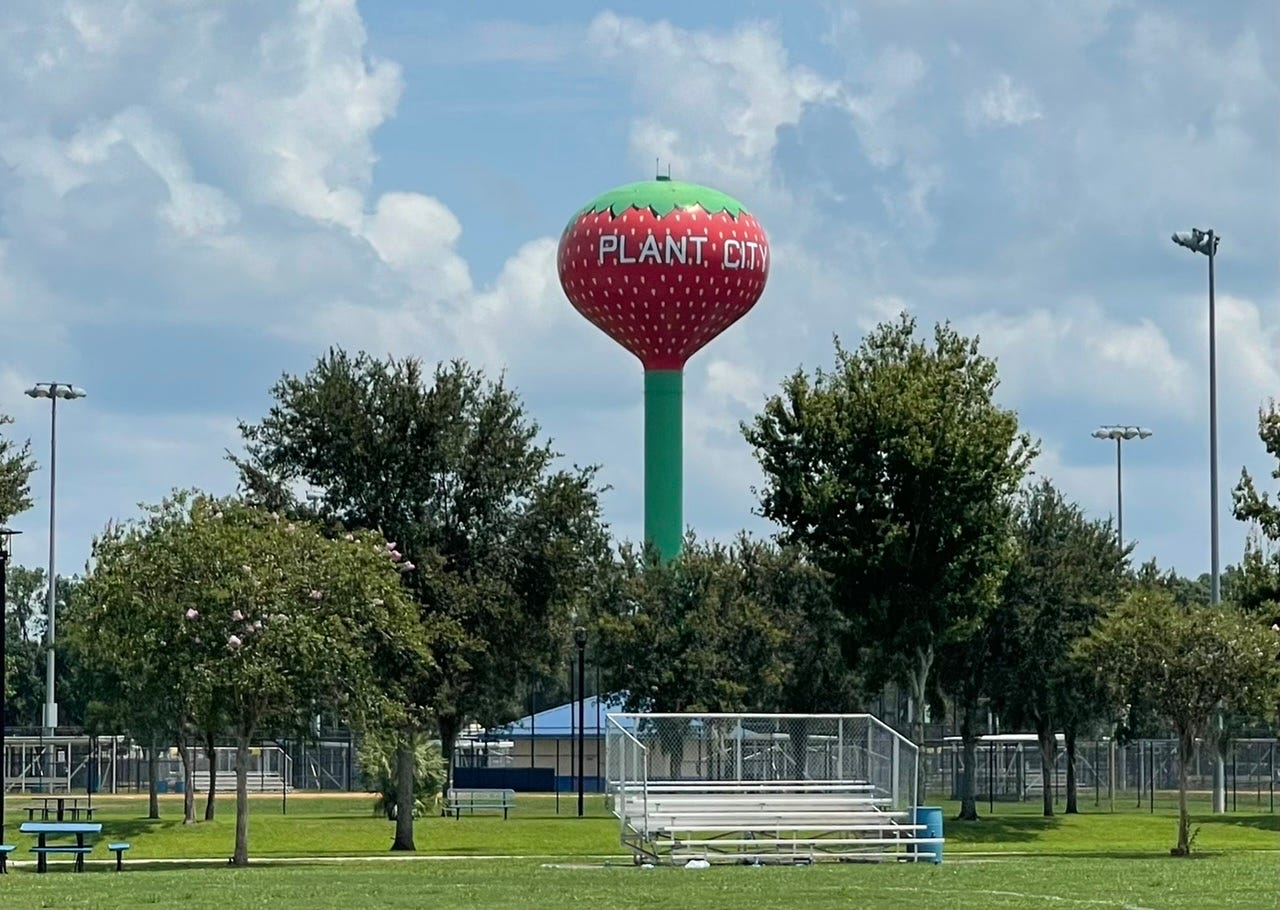Matt’s Mix Tape, Vol. 102
Hi, I’m Matt Tillotson and this is Matt’s Mix Tape, a weekly Mix of ideas on writing and content strategy for the Creator Age.
This week’s Mix:
The writing lessons of Winston Churchill
Peering into the future from 1994
Why creation isn’t better than consumption
To persuade readers, focus on the micro
Plan your work using the Amazon six-pager
This week’s Mix Tape logo
Winston Churchill sits atop the Mix this week. After writing many Twitter thread duds over the past year, I wrote a semi-successful thread this week which distilled writing lessons from Churchill. More on that below.
Also: I’m experimenting with brand colors. Bear with me. I may continue tweaking in the coming weeks.
The writing lessons of Winston Churchill
Erik Larson’s The Splendid and the Vile (I loved it!) is a book about Winston Churchill in the time of the London Blitz. Most of us know something about Churchill the orator, but what about Churchill the writer?
Churchill, an eloquent and prolific writer, used writing to:
Clarify war strategy
Lead and inspire the British people
Set pacing, precision, and accountability for his staff as they worked to save the country from the Nazis.
I distilled 14 writing lessons from Winston Churchill l learned in the book, including one from his naked meeting in the White House with President Roosevelt. You can read those lessons here.
Peering into the future from 1994
Prescient predictions from then-young Gen Xers:
On-point thoughts on e-commerce, work-from-home, technology-created isolation, racial strife, and more.
“I didn’t see that coming” usually isn’t the case. So what future trends should we be thinking about right now?
Why creation isn’t better than consumption
It’s dumb to argue content consumption is a waste of time. Consumption is part of creation:
We should discuss what to consume as writers and creators—garbage in, garbage out—but everything is a remix. There’s no output without input.
To persuade, focus on the micro
Marketing dynamo Josh Spector, on how he writes persuasively:
I tell small stories.
A single person’s story often conveys more than a mountain of statistics or research ever could.
[…]
This principle is why so many successful business books are rooted in a collection of individual stories.
Small stories make larger messages easier to understand.
Big statistics seem convincing, but the brain can’t convert them to emotion, and thus, believability. Not so with stories.
That’s why politicians tell the story of “Beulah, whom I met in Iowa,” on the campaign trail. Small stories persuade because we can relate to them.
Plan your work using the Amazon six-pager
After reading the book on Churchill, I’m interested in how leaders can use writing principles to set corporate culture and priorities.
Today, Amazon, uses writing to clarify thinking and strategic priorities—a clear advantage over the PowerPoint dog-and-pony shows used in most corporate cultures.
One of Amazon’s writing requirements is the “six-pager,” and former Amazon employee Jesse Freeman breaks down the format:
“If you struggle to write detailed plans for your business, this may be a useful structure to emulate.”
I concur. Here is Amazon’s six-pager structure:
Introduction: what will be covered
Goals: metrics, or key performance indicators (KPIs) which will define success
Tenets: The “North Stars” or purpose of the actions
State of the business: Current performance
Lessons learned: what worked, what didn’t, and what should change based on the state of the business
Strategic priorities: The plan and how to execute it to reach the goals stated above.
Freeman says leaders would produce two six-pagers annually—one each for the 1H and 2H of the operating year. In high-stress meetings, other leaders read the document, challenge assumptions, and ask questions.
The format is useful for entrepreneurs, business leaders, content planners and creators, amongst others.
But include the hard part: peer review and feedback.
This weeks’ Florida photo
The photo is, finally, from Florida again.
This is the water tower in Plant City, Florida’s strawberry capital. Plant City is also home to the annual Strawberry Festival, which I have never attended, because traffic.
Welcome to 15 new subscribers!
Including Leif, Juan, Deondre, Ben and Angela.
And thank you to you for reading.
Please reach out and say hi, ask a question, whatever—anytime.










